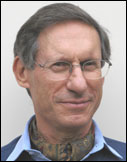Source: Testimony before the House Foreign Affairs Subcommittee on Terrorism
 A revival of nuclear energy worldwide appears to be looming, but it will not take place overnight and now is the time to ensure that future nuclear expansion is as safe and secure as possible, said Pierre Goldschmidt, in testimony before the House Foreign Affairs Subcommittee on Terrorism, Nonproliferation, and Trade.
A revival of nuclear energy worldwide appears to be looming, but it will not take place overnight and now is the time to ensure that future nuclear expansion is as safe and secure as possible, said Pierre Goldschmidt, in testimony before the House Foreign Affairs Subcommittee on Terrorism, Nonproliferation, and Trade.
The ability of the nonproliferation regime to prevent the further spread of nuclear weapons will only go as far as the relevant actors of the international community will permit. To strengthen the regime, according to Dr. Goldschmidt, it is the responsibility of the five nuclear-weapon-states, the International Atomic Energy Agency (IAEA), the UN Security Council, the Nuclear Suppliers Group (NSG), and all member states of which each of these organizations is comprised to take five preventive measures:
- Increase the IAEA’s verification authority and detection capability so that it can detect undeclared nuclear-related activities (including weaponization) in non-nuclear-weapon states;
- Improve the credibility and enforcement capabilities of the IAEA and UN Security Council for cases in which a state is found to be in non-compliance with its safeguards agreement or thereafter withdraws from the nuclear Non-Proliferation Treaty (NPT);
- Provide credible fuel supply guarantees to reduce the incentive for states to develop sensitive fuel cycle capabilities at the national level;
- Limit and improve control over illicit trafficking and transfers of nuclear material and dual-use items; and
- Make significant and irreversible progress in nuclear disarmament beginning with the ratification and entry-into-force of the Comprehensive Test Ban Treaty (CTBT).
Among the practical and concrete measures suggested to reach these goals, Dr. Goldschmidt submitted to the House Subcommittee a draft of a generic UN Security Council resolution for dealing preventively with cases of non-compliance, a detailed proposal for the NSG to adopt criteria-based export conditions applicable to all non-NPT states, and a list of objective conditions under which supplier states could provide long-term generic export licenses for fuel reloads of electrical nuclear power plants.
Click on the PDF icons above to download Dr. Goldschmidt's written testimony and transcript.





